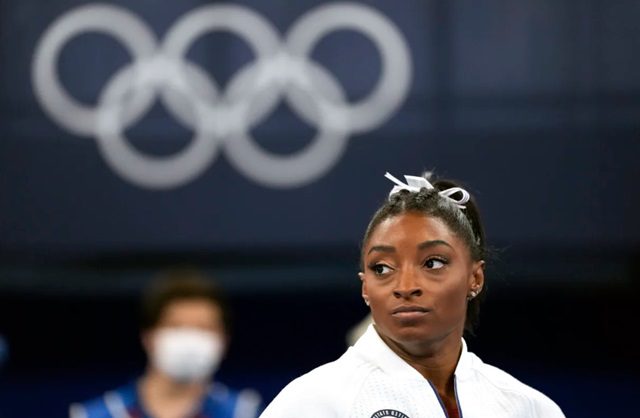BTN News: Lydia Jacoby made headlines at the last Summer Olympics, winning a gold medal in the 100-meter breaststroke and a silver in the relays for the United States. However, what came after Tokyo for her is just as significant.
Jacoby has candidly discussed experiencing what many call “post-Olympic depression.” She admits she didn’t understand the concept until it hit her after the Games. “People talk about post-Olympic depression,” she said. “I basically didn’t understand the subject of depression. It wasn’t until after the Games that I thought, ‘Oh… I’m feeling that a bit.’” Her open discussion highlights a significant shift in how athletes approach mental health today.
As the Paris Games approach, starting this Friday, followed by the Paralympics on August 28, athletes have better access to mental health resources than ever before. This change comes as awareness around mental health has grown, with more athletes willing to seek help and discuss their struggles openly.
Jessica Bartley, Senior Director of Psychological Services at the U.S. Olympic and Paralympic Committee, noted that nearly half of the athletes in recent U.S. teams have faced issues like anxiety, depression, sleep disorders, eating disorders, and substance abuse. The critical questions now are whether all athletes will seek the help they need and if there are enough resources available.
Regarding the former, Bartley is cautiously optimistic. “I’d like to think we’ve gotten over the hurdle, but we’re not quite there yet. I feel there’s still some stigma. I think there are still some connections to ‘weakness’,” she said.
Track star Gabby Thomas echoed this sentiment, suggesting that more resources could still be beneficial. The voices of high-profile athletes like Simone Biles, Naomi Osaka, and retired swimmer Michael Phelps have been pivotal in the global conversation on mental health. Phelps, who has more Olympic medals than anyone in history, has openly discussed his struggles with suicidal thoughts and produced a documentary on depression among Olympic athletes. He has also called on the International Olympic Committee (IOC) and national committees to do more.
Osaka, a four-time Grand Slam champion and former world number one, has been vocal about her experiences with anxiety and depression. She was one of the first athletes to take mental health breaks from competition, setting an example for others. Biles, who has redefined excellence in gymnastics and won seven Olympic medals, drew attention and some criticism for withdrawing from events in Tokyo due to a mental block known as “the twisties.”
Biles’ public explanation of her struggles was significant, especially given her status as the biggest star of the Tokyo Games. “She didn’t have to do it,” said WNBA MVP Breanna Stewart. “She used her platform to help others.”
Athletes like canoeist Nevin Harrison, who won gold in Tokyo, have found Biles’ actions inspiring. Harrison acknowledged that anxiety, fear, and stress are inherent in high-level competition. Biles demonstrated that there could be a way out. Boxer Morelle McCane resonated with this, recalling a time when she felt competing was a life-or-death matter.
The landscape for Olympic athletes today is markedly different from the past. Janet Evans, a four-time gold medalist in swimming from the 1988 and 1992 Games, remembers the relentless pressure to perform without the empathy or support available to today’s athletes. “We didn’t talk about the struggles. No one taught me it was okay to lose, right? I mean, I was Janet Evans, and when I went to a swim meet, I was supposed to win,” said Evans, now the athlete director for the 2028 Los Angeles Games. “We talk about it now and recognize it with our athletes. And I think that’s an important first step.”
Rugby player Perry Baker, who debuted at the Olympics in Rio de Janeiro in 2016, has also noticed the shift. “You had to tough it out. You felt like you couldn’t talk to anyone,” said Baker, who had a brief stint with the NFL’s Philadelphia Eagles.
Evans emphasized that winning medals shouldn’t come at the expense of athletes’ futures. “We should go to the Olympics and Paralympics and win medals. But I don’t think that should be at the expense of how we are preparing our athletes for the future. Both things can happen.”
Bartley and her counterparts in other countries and the IOC are working to ensure this balance. The Winter Games in Beijing two years ago were the first to issue additional credentials for national Olympic committees to bring mental health professionals. In Paris, there will be over 170 professionals from more than 90 countries. There will be a 24/7 helpline with mental health counselors in over 70 languages, an AI monitoring athletes’ social media for cyberbullying, and a “mental zone” in the athletes’ village with yoga, low lighting, comfortable seating, and other tools dedicated to disconnection and decompression.
This increased focus on mental health marks a significant evolution in the support available to Olympic athletes. As more athletes like Jacoby, Biles, and Osaka share their experiences, the hope is that seeking help for mental health issues becomes as normalized as training for physical performance.


